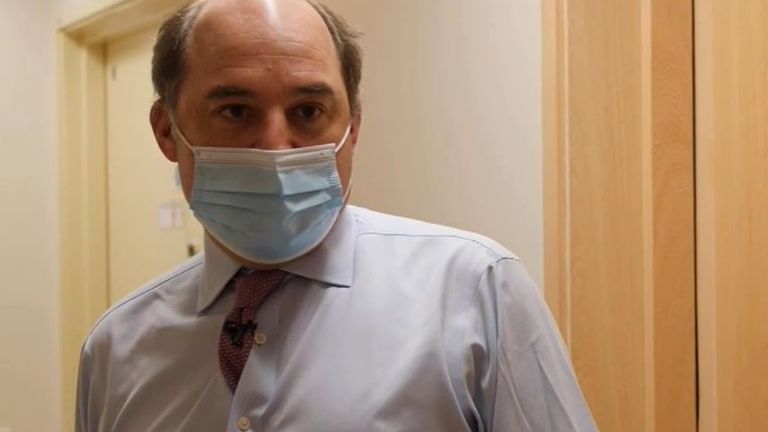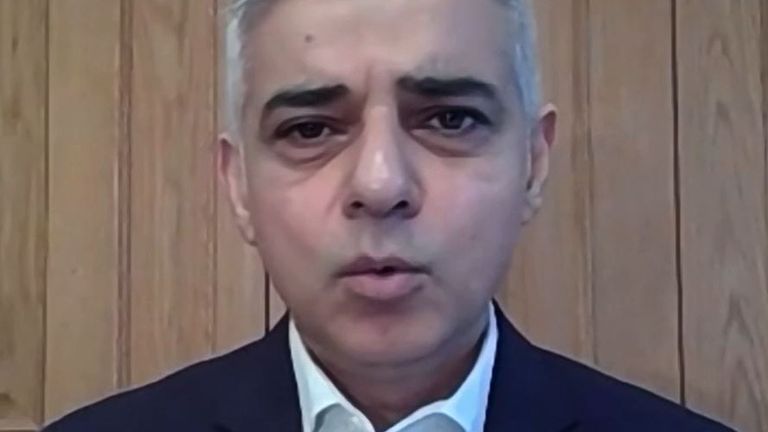Burnt-out NHS staff will be offered more support from military medics as they prepare to cope with a new wave of non-COVID patients, the defence secretary has told Sky News.
Ben Wallace said “exhausted” staff would be given help as they start to come out of the worst of COVID-19 but are forced to confront the growing list of people waiting for routine treatment.
Speaking on a visit to The James Cook hospital in Middlesbrough where military staff worked hand in hand with the NHS to bolster the response to the coronavirus, he said giving people a break will be essential in the next phase of the pandemic.
Mr Wallace said: “I know people are going to be exhausted in this hospital and that means we have to care for them and give them respite, so when hopefully things get back to normal they are not running on empty.
“So we will be looking in defence at how we can help them deliver that, how defence can just find the right people to relieve some people to give them that break, that will make all the difference.”
Middlesbrough is one of a number of hospitals around England where the military are embedded within the NHS in ordinary times in order to keep their medical skills current and boost the NHS workforce. But throughout the pandemic the skills learnt on overseas operations, including during the Ebola outbreak in Sierra Leone, have helped the hospital improve the way it handles infectious patients and cut rates of COVID spreading.
Around the UK additional military personnel have been deployed to help the NHS cope with the surge of coronavirus patients, including in Wales where the military are helping staff the ambulance service after a shortage of NHS employees.
Sue Page, the chief executive of the hospital, said: “We couldn’t have done it without them”, adding that their experience of crisis and military planning helped to reassure NHS staff and give them confidence in the early stages of coping with the virus.
Middlesbrough currently has the highest COVID-19 case rate in the country and despite calls to end the lockdown there is concern that staff are still coping with a peak in intensive care which could get worse if people are allowed to mix with others again.
Mr Wallace said the government will focus on protecting the NHS and considering the data, not dates, when Boris Johnson announces his plan to unlock on Monday.
He added: “We all feel it you know, we have all been in 12 months of some sort of lockdown and personally we all feel it.
“It’s like a devil and an angel on our shoulder and I wouldn’t pretend it is any different, but the key thing to remember is it is about making sure the flow into our hospitals are managed because if that falls over that’s when we get into real problems.”
He also hinted at an ongoing debate inside government about whether some areas should be considered for “bespoke” lockdowns if their case rates are higher, or whether the whole country should move out of lockdown measures together.
He said: “When we make this decision this time around it will be based on a much better understanding of the data so I am sure the decision we make will be the right one.”



